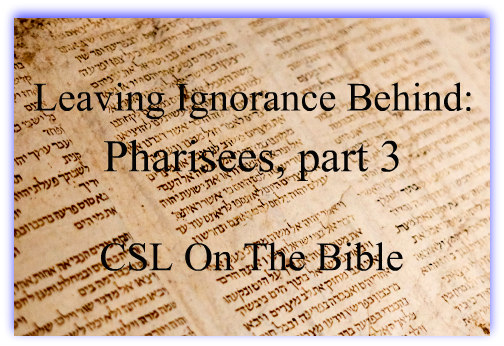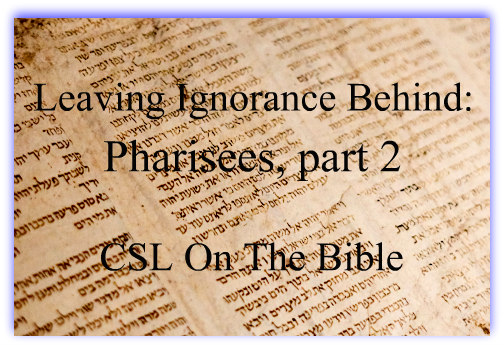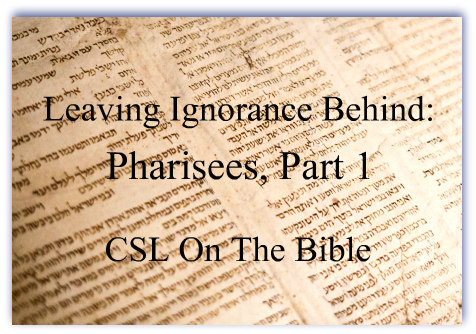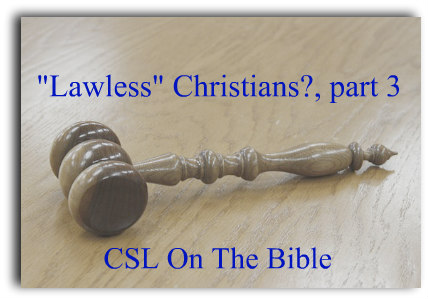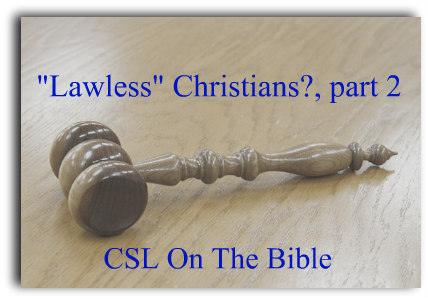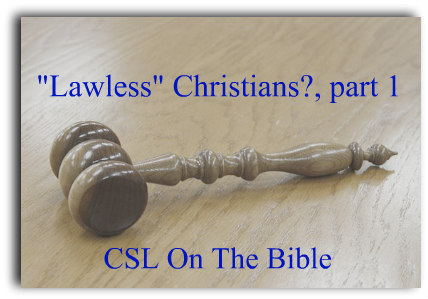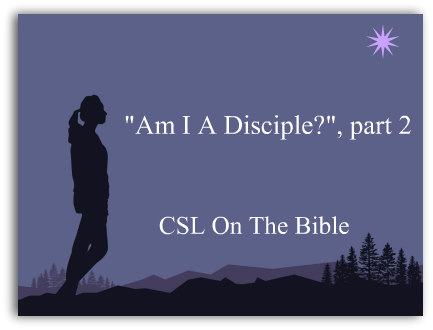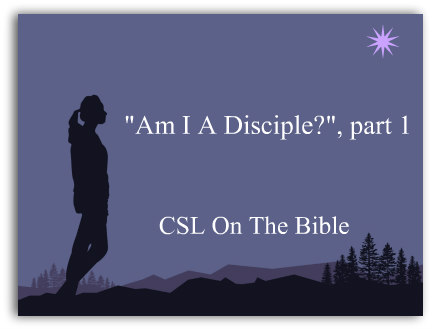Folks, you are going to have to excuse me, but I got hit with a bombshell of a revelation this past week. We Christians are always whinging about how the Jews rejected Jesus as God’s messiah, and that when Paul spoke of a veil being placed over their eyes, he was supposedly prophesying about how God intended the Jews to reject Jesus so that we Gentiles could be brought into the new Church that Jesus instituted.
Pardon me, but I’m coming around to the point of thinking that this just might be a bunch of bovine effluvia!!
Background
If you have been following what I have been writing over the past three years, you know that I have been exploring more and more the Jewish roots of our faith. My readings over this short period of time have been nothing short of revolutionary to my faith and practice. For example, I have become chary of using words like “church, “christian,” and even “Christ.”
- Church? The Greek word, ecclesia, doesn’t have a religious content, but merely means an assembly. In fact, in one verse in the New Testament speaking of the near riot by the silversmiths of Ephesus, ecclesia is the word used for the mob of angry protesters gathered to oppose Paul’s teachings: “for the assembly was in confusion” (Acts 19.32, ESV). Hardly a revival meeting…
- Christian? The word is derived, of course, from the Greek Christos, which is the direct Greek translation of the Hebrew word mashach. Mashach means “anointed, to anoint”; Christos is the Greek word that means “anointed, or to anoint.” More importantly, the Hebrew mashach is the word from which we get the term “Messiah.” I prefer to say that we are messianic rather than Christian, because “Christian” makes an artificial distinction between followers of Jesus and the Jews.
- Christ? First, so many people seem to believe that “Christ” is his last name. But more importantly, Jesus wasn’t the Christ, he was the Messiah, a completely Jewish concept. We need to acknowledge that Jesus is Messiah, according to the prophecies of the TNK.
Jesus the False Prophet?
Judaism has rejected Jesus as God’s messiah for 1900 years. (Important note–I didn’t say 2000 years! After all, in the first century, many of Jesus’ followers were Jewish, and the leadership of the congregations was almost entirely Jewish.)
But what if it were conceivable that the rejection of Jesus by the Jews is actually done for the right reasons, and in fact, an act of devotion and commitment to God? Could that possibly be the case?
I know that you are probably thinking that I have embraced heresy, and that I am denying the divinity of Jesus. But I’m not. The real problem is that for nearly 1900 years, the church has been presenting a picture of Jesus that violates the word of God, and presents Jesus as the very embodiment of a false prophet, according to scripture. If this is the case, then the Jewish rejection of Jesus as the Church has presented him is because they held true to God and His scripture. In my mind, it is possible that the Jews rejected a false Jesus that the Church has been presenting for nearly 1900 years!
Recognizing a False Prophet
Please read this portion of Deuteronomy carefully. (Understand that Moses is presenting the second generation of Israelites with the covenant, and gives them a warning to not be like their parents, the generation that perished in the desert.)
“If a prophet or a dreamer of dreams arises among you and gives you a sign or a wonder, and the sign or wonder that he tells you comes to pass, and if he says, ‘Let us go after other gods,’ which you have not known, ‘and let us serve them,’ you shall not listen to the words of that prophet or that dreamer of dreams. For the LORD your God is testing you, to know whether you love the LORD your God with all your heart and with all your soul. You shall walk after the LORD your God and fear him and keep his commandments and obey his voice, and you shall serve him and hold fast to him. But that prophet or that dreamer of dreams shall be put to death, because he has taught rebellion against the LORD your God, who brought you out of the land of Egypt and redeemed you out of the house of slavery, to make you leave the way in which the LORD your God commanded you to walk. So you shall purge the evil from your midst. (Deut. 13:1-5, ESV)
Note especially the highlighted phrases, because they constitute the basis for the Jewish rejection of Jesus as Messiah.
The Church Offered a False Prophet
“Wait a minute, CSL, are you trying to claim that Jesus was leading the Jewish people astray to serve other gods?”
No, I’m not. Please go back and re-read the words that I highlighted in that passage that gives the distinctive of a false prophet: a false prophet is one who, while possibly being a miracle-worker, seeks to lead the people of God from the ways of God. That is the crucial point to understanding why Jews have rejected Jesus as Messiah, and why he is labelled a false prophet in the Talmud.
This is the core issue of why the Jews rejected Jesus as God’s Messiah. During the first century, the followers of Jesus were Jews who accepted that Jesus was God’s Messiah, and the leaders of the new movement were Jewish, some of whom were rabbis. The Jews did NOT reject Jesus. In fact, in the book of Acts, the leaders in Jerusalem report to Paul,
And when they heard it, they glorified God. And they said to him, “You see, brother, how many thousands there are among the Jews of those who have believed. They are all zealous for the law, (Acts 21:20, ESV)
Did you catch that? “Many thousands of Jews” were believers. Israel, as a nation, did NOT reject Jesus in the first century. The Sadducees, the priests, yes, they rejected Jesus, but in the first century? Not the nation.
But the seeds of Jewish rejection are hinted at in Acts 21.20, and the rest of the book of Acts plays up on that reason. Look at the last part of the verse:
They are all zealous for the law…. In fact, it is this zealousness for the Law that leads to the rejection of Jesus as Messiah.
Why? Because God commanded this zealousness, in Deut. 13, above. What we call “Law” is actually “Torah”, and Torah is God’s way that He has commanded Israel to walk. And a false prophet is anyone who tries to lead people away from God’s Torah/Law.
First Century Jews, Jesus, and Torah
Guess what? When the apostles told Paul that there were many thousands of Jewish believers in Jerusalem, who were also “zealous for the Law,” this wasn’t seen by them or by Paul as a contradiction. They, too, were zealous for the Torah of God, because Jesus was a teacher of that same Torah!
The first century believers, both Jewish and Gentile, believed that God gave Torah to Israel, and that it was God’s way of living. This was the message of the New Testament, that Jesus, as Messiah, came to teach a pure Torah and an eternal Torah. “For truly, I say to you, until heaven and earth pass away, not an iota, not a dot, will pass from the Law until all is accomplished.” (Matthew 5:18, ESV)
Jesus taught Torah and his followers were zealous for God’s Law/Torah. In fact, it was the belief that Gentile converts to Jesus would catch this devotion to Torah from the synagogues that they would start attending. After all, that is what James the Elder leans on when the Jerusalem Apostles made their ruling on Gentile converts:
“For from ancient generations Moses has had in every city those who proclaim him, for he [Torah] is read every Sabbath in the synagogues.” (Acts 15:21, ESV)
In James’ mind, the Gentiles will learn what it mean to follow God by going to synagogue and learning Moses’ Torah!
The Church Changed Jesus
However, starting in the second century AD, the Church began to preach a Jesus who, in the eyes of the Jews, DID attempt to lead God’s people astray, in violation of Deut. 13.
How? By teaching that Jesus came to do away with the Torah. On the strength of a few verses interpreted wrongly, the Early Church Fathers taught that Jesus destroyed the Law, that he instituted the Church and apostolic supremacy, and in essence condemned the entirety of the faith delivered to Moses and to Israel.
The Church began to teach that Jesus came to do away with Torah, that the Law was obsolete. According to the Church, Jesus brought in a new way of salvation and replaced the Jews as God’s Chosen people.
By teaching that Jesus violated God’s covenant, the Church ensured that Jews would have nothing to do with Jesus. By preaching a Jesus who rejected Moses and Torah, the Church made it a requisite that Jews reject Jesus as a false prophet, by God’s own Word.
The blame for the Jewish rejection of Jesus as God’s Messiah is on the Church, pure and simple.
CSL

